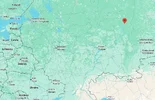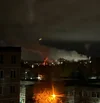ChrisO jakaa mielenkiintoisia ryssäläisiä kirjoituksia joissa käsitellään vapaaehtoisten lahjoitusten merkitystä (lihavoinnit minun, jotta näkee paremmin mistä suora lainaus alkaa ja mihin se päättyy):
Russia's war effort in Ukraine has become critically dependent on self-funded logistics organised by civilian volunteers and the soldiers themselves, who are spending their salaries on basic supplies and equipment that the state does not provide.
Soldiers and volunteers have been speaking for some time about shortages of almost everything on the front line, with the gaps being filled at their own expense by 'humanitarian aid' fundraisers and the soldiers' own expenditure.
Fundraising has become increasingly precarious due to a sharp drop in the amount of donations. Volunteers have complained that few people now respond to their appeals, and repeated scandals around the theft of donated aid have not helped.
Commenting on the situation, 'Belarusian Silovik' explains:
"We need everything for the front. Literally everything. Tools, consumables, camouflage nets, communications, and even ammunition was recently thrown together."
"Of course, the top requests to me personally, as the author of the channel, from units are for cars, motorcycles, ATVs, and, of course, drones. There's a huge number of requests for drones. Some people don't even understand the scale of the requests."
"I think every admin of a major Telegram channel can confirm that the requests are simply colossal, and we certainly won't be able to help most of them."
The reason is not so much that the Russian military is having difficulty in supplying the frontline troops (though it is, due to Ukrainian drones), but that the list of things that it does supply is far too narrow to meet their needs:
"Please understand, the troops are provided with almost everything according to established standards (not always and not completely, but let's assume), but these standards do not allow them to carry out their tasks in such a way as to preserve lives as much as possible, perform the task qualitatively, and then continue to move forward. That's putting it very simply. Frontline soldiers may correct me."
"I'm not saying that volunteers are carrying the entire front line on their shoulders, but it is sponsors, volunteers and other outside help that provide an important part of what is needed."
"The boys will still return home, but it largely depends on us whether they return with a shield or on a shield." [i.e. victorious or dead]
As an example of what the state doesn't provide, the vast majority of vehicles used on the front line – at least 90% – are said to be privately purchased, including all the motorcycles and scooters seen in videos of assaults. The Russian military won't buy them.
A soldier complains:
"A motorised rifle company is supposed to have four armoured troop carriers. And they are. But motorcycles and scooters are not allowed. That is all."
'Reserve Pioneer' is fed up with the situation:
"There are moments when I want to scream: What the fuck is going on? It's certainly encouraging that they've stopped talking about red lines, but that doesn't change the situation."
"While various rubber products #2 are lining their pockets with billions, the problems associated with the front aren't being solved."
"I'm not a military expert; I'm a strange corporal who saw a little bit of combat. But even in my head, there are plenty of solutions to various issues. The problem, I suppose, is that no one wants to solve them. And that's perhaps the most gnawing issue."
"It's not a lack of resources or opportunities, but a lack of will. The will to change and the will to win, ultimately."
"We see beautiful reports, we hear bravura statements, but the reality on the front lines tells a different story. There aren't many drones, modern communications, adequate food, or uniforms, to put it bluntly."
"Fortunately, we have volunteers who, with their incredible efforts, try to meet these needs."
"But the most terrible thing is to see these guys die. Young, full of strength, believing in the best."
"They die because of someone's negligence, because of someone's greed, because of someone's stupidity. Yes, they'll catch another thief, but that won't bring the soldier back to life."
Sources:
https://t.me/belarusian_silovik/61700
https://t.me/belarusian_silovik/61709
https://t.me/belarusian_silovik/61710
https://t.me/pionergrupa/8544
-
Muistan nähneeni jo aikaisemmin kommentteja siitä miten ryssän kotirintama on alkanut väsymään sotaan, mikä näkyy pienentyneinä ja vähentyneinä lahjoituksina.
Lisäisin myös, että sitä mukaa kun Venäjän taloustilanne kääntyy huonompaan suuntaan, jokainen kansalainen joutuu miettimään, mihin ruplansa käyttää. Bensiini ja diesel kallistuvat, samoin valtaosa muista arkihyödykkeistä. Oma napa on se läheisempi huoli, jolloin kaukainen "tsaarin sota" saa pärjätä omillaan.
Putin tietysti korottaa erilaisia veroja, jotta sodankäynnin kustannukset saataisiin katettua, mutta kuten yllä kirjoitetaan, "armeijan materiaalivirrat" eivät riitä korvaamaan kaikkea eikä niitä ole edes kohdistettu kaikkiin rintamalla tarvittaviin artikkeleihin (erityisesti ajoneuvot ja dronet). Eli jos vapaaehtoisten rahoittamat tarvikkeet jäävät ostamatta ja toimittamatta, se näkyy suoraan joukkojen taistelukyvyssä (olettaen että armeija ei ryhdistäydy ja hanki näitä tarvikkeita itse - sotaa on nyt käyty 3,5 vuotta ja tässä ollaan, joten mahtaneeko "ryssä oppia" edes tällaisen pakon ajamana?).
Toinen ajatus mikä tuota lukiessa tuli mieleen: sotilaat käyttävät ison osan palkastaan kaikenlaisten varusteiden ostamiseen tai ylempien lahjomiseen, jolloin venäläisittäin hyvin suuresta palkasta ei voi jäädä paljoa säästöön. Mikä tarkoittaa sitä, että kun sota joskus päättyy, heillä ei ole juuri mitään. Haavoittuneita, traumatisoituneita, valtion pettämäksi joutuneita palaa kotipuoleen useita satoja tuhansia. Siinä voi olla tekeminen, jos haluaa pitää tämä joukon kurissa ja nuhteessa sodan päättymisen jälkeenkin.











